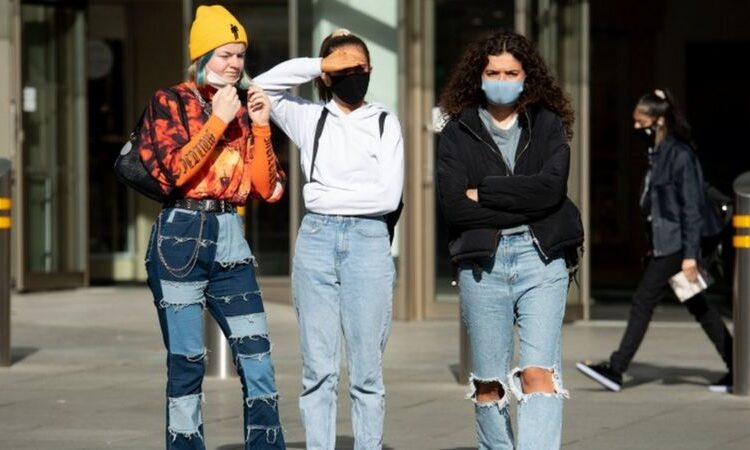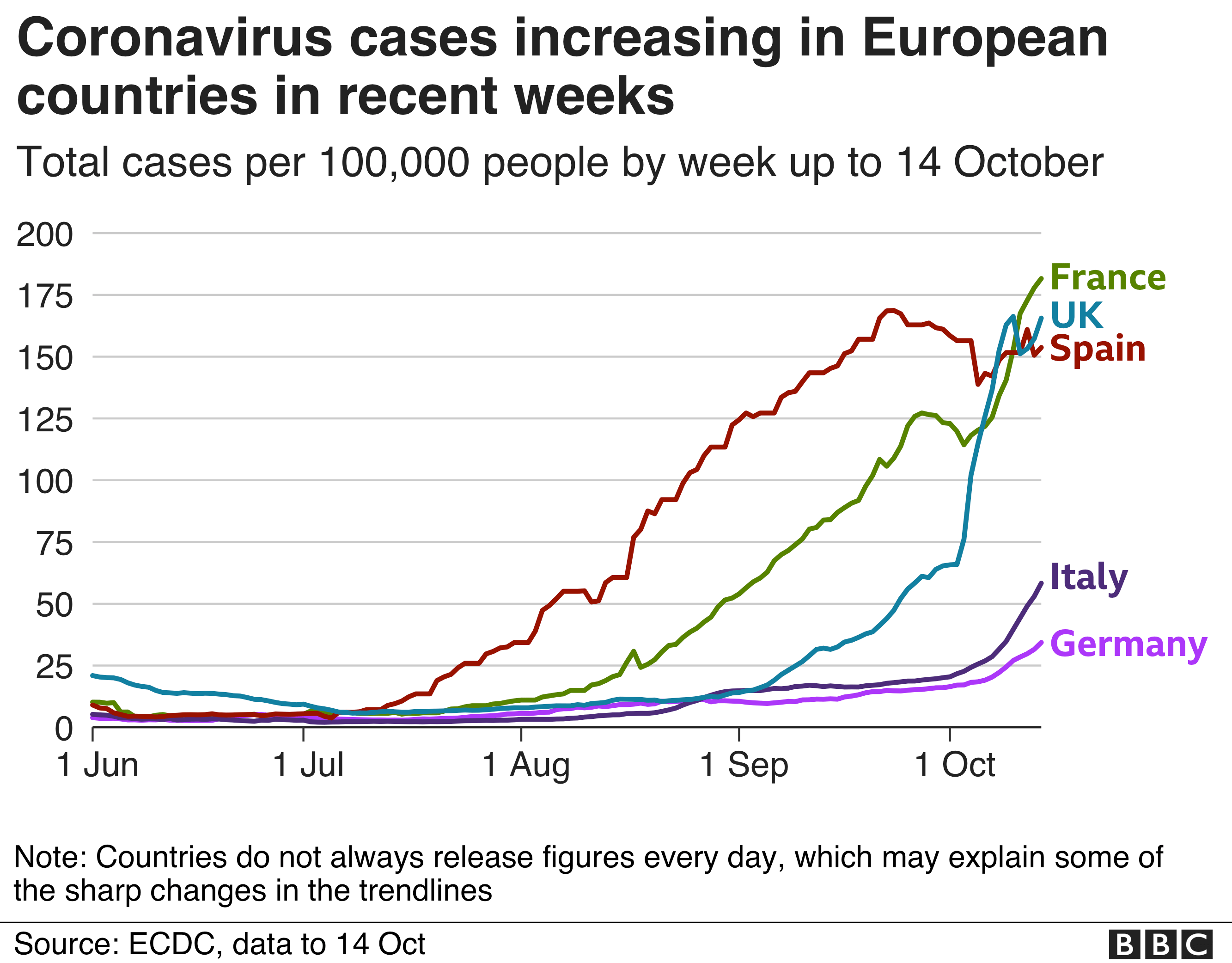
IMAGE COPYRIGHTPA MEDIA image captionMeasures against coronavirus are being ramped up in cities across Europe
By The Visual and Data Journalism Team
BBC News
Tough restrictions are “absolutely necessary” to save lives, the World Health Organization (WHO) has warned as Europe battles a second Covid-19 wave.
It comes as millions of people in European capitals and other cities have been told they must live under strict new measures.
From Saturday, socialising indoors will be banned in London, and a curfew will be imposed in nine French cities.
But the situation is not as bad as it was in March and April, the WHO says.
On Thursday, Poland designated red zones where schools and gyms will close, including in the capital Warsaw, and the Czech Republic said it is building its first field hospital for coronavirus patients.
On Wednesday a partial four-week lockdown began in the Netherlands, while bars and restaurants in higher-risk parts of Germany have been ordered to close early.
Coronavirus is the fifth-leading cause of death in Europe, where a threshold of 1,000 deaths daily has been passed, the WHO’s European director, Dr Hans Kluge, told a press conference on Thursday.
“It’s time to step up. The message to governments is: don’t hold back with relatively small actions to avoid the painful damaging actions we saw in the first round,” he said.
Meanwhile, the European Commission has called on countries to step up their preparations, advising governments to co-ordinate contact tracing and the eventual deployment of vaccines.
“Time is running out,” said Stella Kyriakides, European Commissioner for Health and Food Safety.
On Thursday European Commission Chief Ursula von der Leyen said she was going into self-isolation after a member of her office tested positive. She said she herself had tested negative, but would nonetheless self-isolate “as a precaution”.
How bad is the situation in Europe?
Covid-19 deaths are currently five times lower than they were in March and April, when the first wave hit the continent, the WHO’s Dr Kluge said.
One reason for the increase in cases seen in recent weeks is more young people testing positive for the virus, he said, adding that the lower mortality rate was because that demographic is less likely to die from Covid-19 than older people.

But projections of the course of the disease in Europe were “not optimistic”, he explained.
If European governments relax their restrictions, the course of the virus indicates that by January 2021 the daily mortality rate will be four to five times higher than it was during April, Dr Kluge said.
But if 95% of people wear masks and other social distancing measures are applied, Europe could avoid about 281,000 deaths by February, he added.
He said that governments must consider mental health and domestic violence when imposing restrictions, and do everything possible to keep schools open.
The spread of the virus has been accelerating across Europe in recent weeks after infections began to rise in August and September.
On Thursday both Italy and Germany reported their highest daily rise in cases since mass testing began. In the Czech Republic, which currently has the highest infection rate in Europe, cases have nearly doubled in October to reach a total of 139,290.
And Russia recorded its highest number of daily fatalities since the start of the epidemic with 286 people reported to have died from the virus.
What are the latest restrictions being imposed?
- From Saturday, the UK capital, London, as well as York, Essex and other areas will be moved into a higher tier of alert that means residents must not socialise indoors and can only meet outdoors in groups of six
- A curfew will be imposed on Paris and eight other major French cities that means residents cannot leave their homes between 21:00 and 06:00 without a “valid” reason – the measures begin on Saturday and will last for at least four weeks
- In the Czech Republic, schools and bars have been shut down but infections are still soaring. The government has called on doctors working abroad to return home
- Poland is calling on its elderly population to stay at home, while schools in newly-designated red zones must switch to distance learning
- In Germany bars and restaurants in higher-risk areas must close early. The country recorded 6,638 new cases on Thursday – the highest daily figure since the start of the pandemic
- In Portugal, the government said gatherings would be limited to five people from Thursday. Weddings and baptisms can be attended by up to 50 people but university parties will be banned
- Catalonia also said restaurants in the Spanish region would only be allowed to serve takeaway. Gyms and cultural venues will be allowed to operate at 50% capacity, while shops and large shopping centres must be limited to 30% capacity
- In the Netherlands, all bars, restaurants and coffee shops closed on 14 October except for takeaway; households can have a maximum of three guests per day
- Movement is limited in the Russian capital Moscow, and from Monday senior schools (for children aged aged 13-18) will be closed

